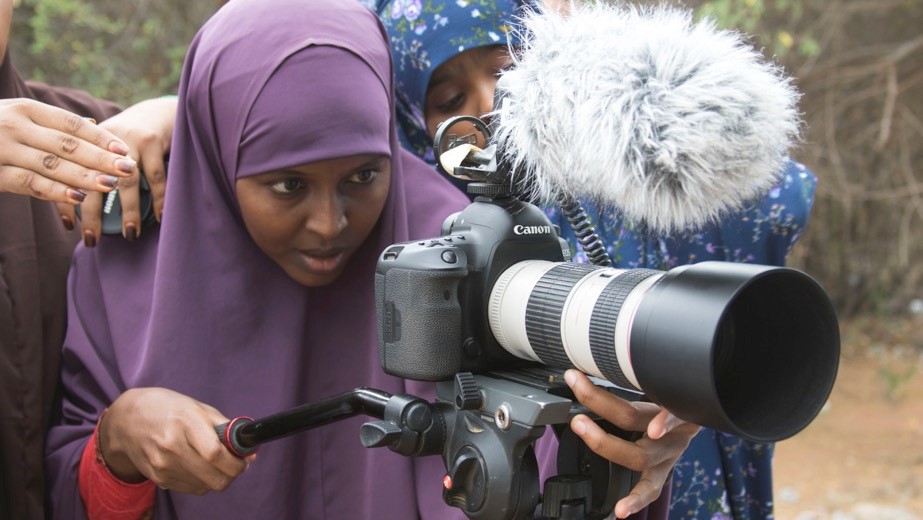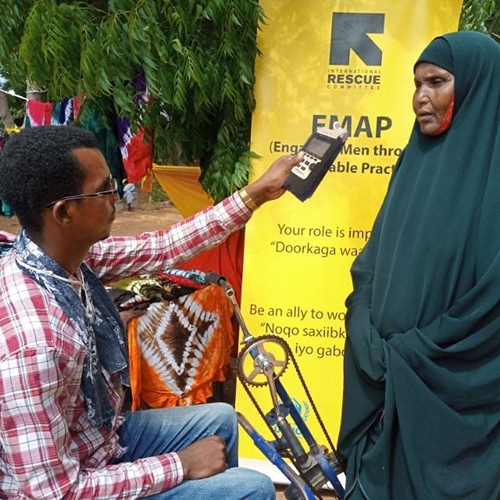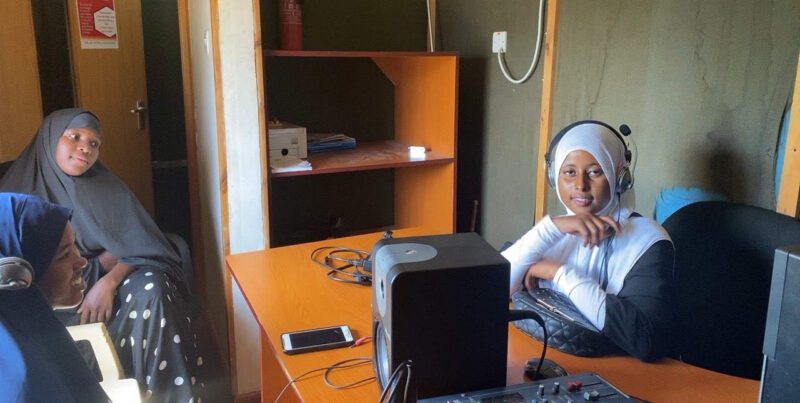For twenty years, the Dadaab refugee camp in the northeastern region of Kenya had no credible source of information. Then, in 2012 Internews started its Humanitarian Information Service (HIS) there, establishing a Somali-language radio station – Gargaar “Help” Star FM – to deliver news and information in the language that most of the refugees use.
The HIS project ended in 2014 but the radio station continued. Now, six years later, Internews is back with an expanded program that creates an information link between the refugees, the local population, and aid agencies in the refugee camp thus closing the information loop and giving particularly new refugees the information they need to access basic services.
This time round Internews is partnering, not only with Star FM to broadcast a daily program on humanitarian issues in Dadaab, but also with FilmAid Kenya to package the information in other forms like theatre plays and films, to reach an even wider audience.

COVID-19 Information
Star FM has been broadcasting a weekly live radio call-in show – Bilan. It is produced and presented by women. The radio show has been a critical tool in disseminating accurate information from experts to listeners since the outbreak of COVID-19 in the country. Three shows have aired on what the refugees need to know about the virus with, not only expert voices from partner agencies like Kenya Red Cross and IRC, but also religious leaders like imams who’ve been recorded live to address some of the myths, rumors and misconceptions arising from community feedback through the radio station.
“The program came at a time when refugees needed it the most, especially women who seemed to have no platform to voice out their concerns,” said Ahmed Noor, Radio Gargaar Team Lead. “Bilan is giving them a platform to share their stories and concerns and it’s easier for them to reach out to the implementing partners working for them via the program, so I would say the program is giving voice to many voiceless women in Dadaab refugee camps.”
Bilan also provides information on other health issues such as maternal and infant care.
Community Correspondents
These radio programs are carefully tailored to equip refugees with information they can use to make life-saving decisions in their daily lives. They also enlist the services of journalists from the camps and the local community who are trained and given technical support by Internews.

The community correspondents and Gargaar Star FM journalists receive trainings and continuous mentoring on community feedback collection and how to escalate urgent cases to relevant authority and agencies. The broadcast also provides a platform where residents can ask questions to the government or aid workers through the live radio shows and get immediate response.
The project also continues to provide employment to qualified residents without discrimination, serving as a source of livelihood and hope, especially to the youth who can now put their talents and skills to use. As of April 2020, Internews has employed five community respondents from Dadaab and the refugee camps including four men (one with a disability) and one woman.
There have been observable social behavior changes like a recorded increase in the number of women seeking child delivery services in health facilities and attending the film events, for instance, due to the continuous mass information campaigns by Internews partners.
“At the beginning some of the men would refuse to allow their women to attend these events but now, we can see an additional number of women attending our field events, an indicator that there is something positive coming out of our activities,” said Film Aid Kenya Ifo Camp Team Leader Abulony Ofula Okello.
Related: Meet journalist Abdullahi Mire, a Somali refugee returned to Dadaab to report for his community
Internews’ work in Dadaab from September 2019 is funded by the United States Department Bureau of Population, Refugees and Migration (PRM).
(Banner photo: Women correspondents who produce and present the Bilan Show on Star FM’s Dadaab outlet-Radio Gargaar, during a field visit by Internews. Photo by Stellar Murumba)
